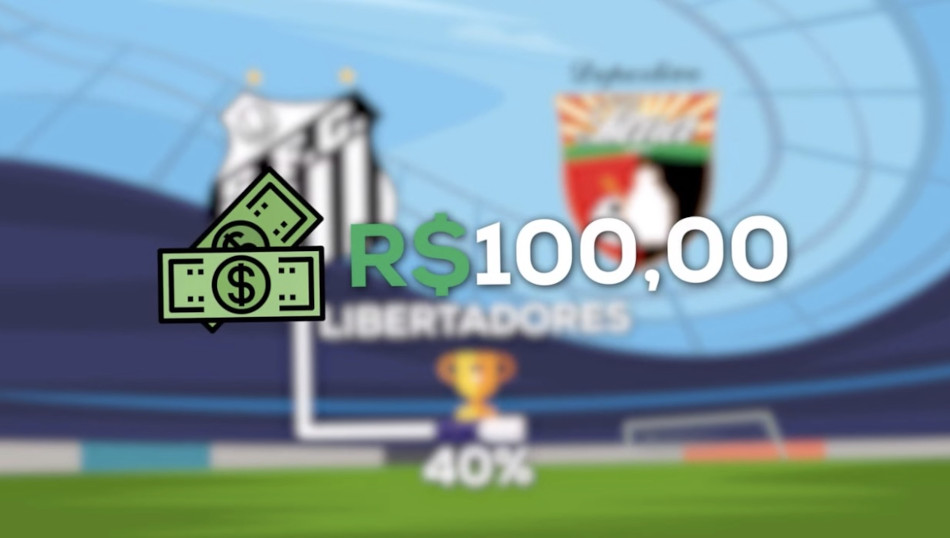Brazilian Bookies Can No Longer Offer Bonuses; Credit Card and Crypto Payments for Online Betting Forbidden
As Brazil began to formulate regulatory policies, it rejected betting bonuses. The country in South America has a new rule that prohibits gaming businesses from offering any kind of bonus or perks, even if it’s just for advertising or promotion.

The new legal system in Brazil would outlaw incentives related to gambling, like bonuses and free bets. The revised instructions, released by Brazil’s Ministry of Finance (Ministério da Fazenda) via its Secretariat of Prizes and Betting (Secretaria de Prêmios e Apostas – SPA), contain the details of the new regulation.
Apart from forbidding specific modes of payment like cryptocurrency, cash, and credit cards (about that a bit later), the new framework explicitly states that licensed operators won’t be permitted to employ incentives to direct clients toward their products.
The new rule prohibits gambling companies from offering bonuses or perks of any kind, even if they are only meant for advertising or promotion (despite the fact that the world’s most reputable gambling brands use incentives, such as deposit bonuses, as an important part of their promotion campaign). In addition to a number of other rules, this one prohibits operators from accepting money from unregistered users and from not paying out gains to players for more than 120 minutes after a game or sporting event ends.
Operators frequently utilize bonuses to entice players, but because of worries about the credibility of the industry and the possibility of an increase in problem gambling, these practices are now outlawed.
Brazil Also Decides to Forbid Several Payment Methods
Due to the same betting industry integrity-related worries like worries about awarding bonuses, the new payment guidelines for Brazil’s regulated sports betting and iGaming market were brought up, coming from the same joint “kitchen” of the Ministry of Finance and the SPA. They prohibit operators from accepting credit card or cryptocurrency payments from bettors.
This corresponds with the initial phase of the four-phase regulatory implementation that was declared by the Ministry of Finance just last week. Until the end of April, payment, technical, and security regulations will be published during this initial phase.
It says that payments with credit cards, bitcoin, cash, checks, or payment slips are not accepted. The only way to transfer money between the accounts of operators and bettors is electronically for bets, withdrawals, and payments. Accounts need to be approved by the Brazilian Central Bank (Banco Central do Brasil).
Additionally, operators aren’t allowed to take third-party transfers or payments from accounts that aren’t linked to the bettor. Furthermore, serving as a middleman between players and operators is forbidden by the rules. But under some conditions, such as enabling bettors to get the money owing to them as a prize, organizations approved by the Central Bank of Brazil are allowed to offer transactional accounts on behalf of operators.
Instructing Bettors About Their Wagering Patterns
One more thing – operators are required to give players access to a virtual account that contains information about their betting preferences. The purpose of this is to enable players to handle their betting and financial information more effectively.
The virtual accounts will show the player’s balance, the total amount of open bets, and their betting history over the preceding 36 months. It’s forbidden for operators to pay out on any of the player’s accounts.
Operators will also be in charge of handling liquidity risks. Establishing a financial reserve with a minimum value of R$5 million (over £780k/over €910k/over $970k) will be part of this. The reserve must be kept in the form of federal public bonds at a financial institution that has been approved by the Brazilian Central Bank. The reserve needs to be kept apart from other private accounts.
Brazil’s Market Is Becoming More Regulated
The newest move in Brazil’s efforts to completely control its sports betting and iGaming industries, making it safer yet profitable, is this.
By July of this year, the nation intends to have its regulatory structure finalized. For instance, in an effort to shield younger and more susceptible audiences from an overload of material encouraging gambling, Brazil intends to adopt similar ad limits to those in other countries and outlaw the use of celebrities in gambling advertisements.
An earlier proposal required all operators to register a .bet domain in place of a conventional domain in order to operate legally, which is .br.








